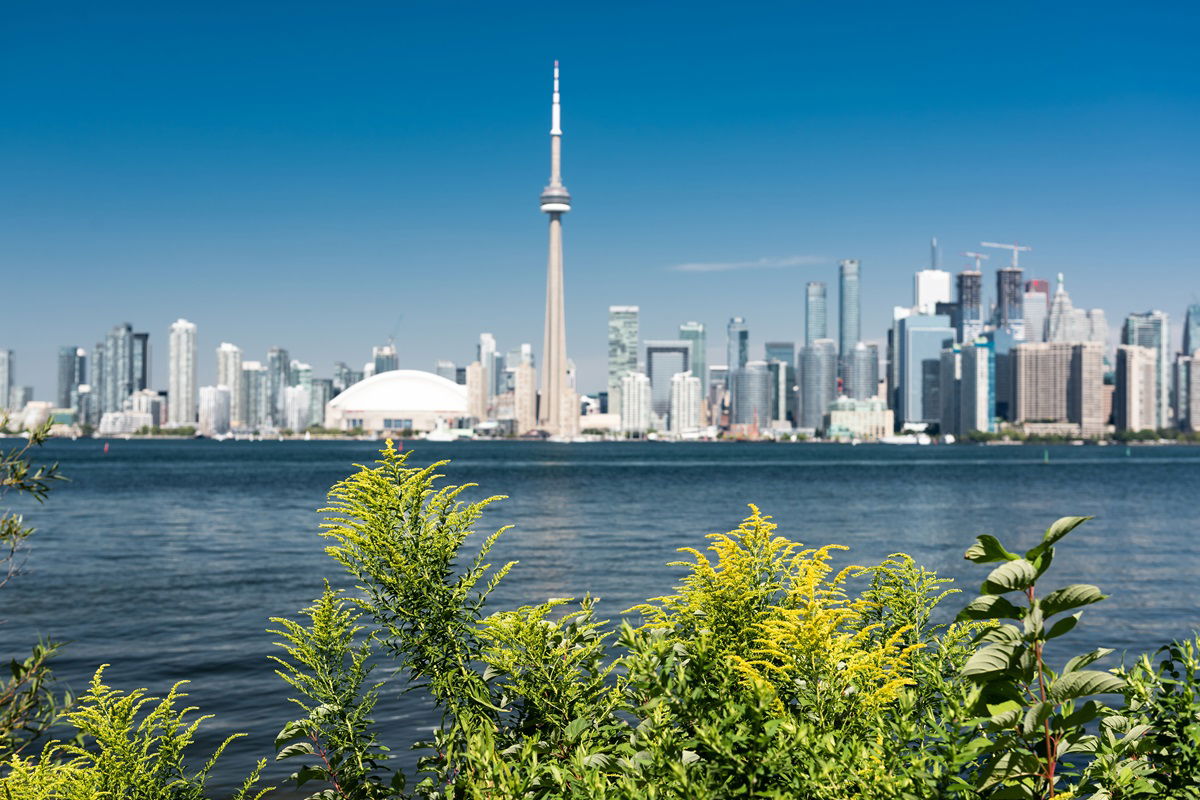
Emigrating to Canada
About 500,000 people dream about starting a new life in Canada every year. Are you one of them? In this article, we talk about the options you have to emigrate to Canada and what living in Canada might look like.
Why emigrate to Canada?
Canada is known for its luscious nature – nearly 70 per cent of its surface is covered by mountains, forests and lakes. A paradise for nature lovers, Canada is especially known for its mighty Niagara Falls, wide mountain landscapes, and enormous lakes. Canada’s wildlife includes black bears, polar bears, grizzlies, reindeer, cougars, wolves, bison and lots more. And its surrounding oceans are perfect for whale-watching (see if you can spot an orca!). The country’s climate ranges from polar in the north to continental and maritime on the west coast.
Even though Canada is the second largest country in the world (almost as big as Europe!) and covers 41 per cent of North America, it has a low population density. Only around 39 million people live in Canada.
Among them are three million Germans, descending from a long line of German immigrants that came to Canada several centuries ago. Most Canada-based Germans live in the provinces of Saskatchewan, Manitoba, and Alberta and in the cities of Toronto, Vancouver, and Winnipeg.
Much like Germany, Canada is considered a safe country with low unemployment rates. The country also boasts an above-average healthcare system, similar to the German one. Canada is also known for its excellent school system.
Requirements for emigrating to Canada
The Canadian government website puts it best:
“Find a job, get your credentials assessed, improve your English and French, and find out what to expect when you get to Canada – financially, socially and culturally.”
You must check the following boxes to emigrate to Canada:
- Job
You need a permanent job offer to apply for a visa. If you are considered a skilled worker in Canada, you have the best chances of finding a job and getting a visa. - Visa
Once you have a job, you can apply for a permanent visa. - Police clearance certificate/certificate of good conduct
To apply for your visa, you will need a clean police clearance certificate. - Financial security
You will also need to prove that you have sufficient financial means to cover your living expenses. - Proof of language skills
You need to prove that you have excellent English skills. Solid French skills may also be required, depending on the region you plan to emigrate to.
Visas for Canada
If you meet the above criteria, your next step is to choose the visa that makes the most sense for you.
These are the two most common visa types:
Federal Skilled Worker Program (FSWP)
You must be considered a skilled worker in Canada to qualify for this visa. Also, you need to get at least 67 out of 100 points on the points system. You get points for your language skills, work experience, education, age bracket, etc.
Provincial Nominee Program (PNP)
This type of visa is also for skilled workers looking to emigrate to Canada. However, the criteria here are slightly different as each province and territory handles visa applications individually.
Have a look at our article “Visa for Canada” to find out more.
Living in Canada
Do you meet the above criteria to apply for a work visa? Off to the next step! Before you decide to emigrate, there are a few things you should know about living in Canada.
Healthcare system
Canada is known for its solid healthcare system, parts of which resemble the German one. Canada’s public health insurance (or universal healthcare) is also open to permanent visa holders. This covers vital doctor’s visits and treatments but does not include dental care – which is why many Canadians take out private dental insurance.
School system
Canada is known for its above-average school system and regularly performs among the best countries in international PISA (Program for International Student Assessment) studies. The Canadian school system is also considered to be particularly inclusive for immigrants, who usually score on par with their native peers in testing procedures.
Cost of living in Canada
The cost of living in Canada depends on your location, with cities generally being more expensive than rural areas. Expenses also vary by province and territory. According to the Canadian government, you should expect to spend about half your salary on rent and utilities.




Working in Canada
To move to Canada and apply for the right visa, you need to look for a job in Canada first.
Most wanted professions
Skilled workers have the best chances of getting a visa for Canada. Due to the country’s skilled labour shortage, you are in luck if you are a skilled tradesperson, an IT specialist, or a healthcare professional.
Salaries and PTO
According to the OECD (Organisation for Economic Co-operation and Development), the average annual income in Canada is the equivalent of around 57,000 euros, which is slightly higher than in Germany. A typical full-time work contract spans over 40 hours, and you usually get two to three weeks’ holiday.
Finding and applying for a job in Canada
As your visa is tied to you having a permanent job offer in Canada, you need to start looking for work before you emigrate. For this purpose, you can visit the Canadian government’s Job Bank or the German Canadian Job Corner online.
You will need the following documents to apply for a job in Canada:
- Cover letter: Your cover letter should be no longer than one page.
- Resume/CV: Your resume/CV should also be no longer than one page. You do not need to include a photo or any details about your age, nationality, marital status, or religion.
- Job references: You usually do not need to include any diplomas or certificates in your application unless the job ad says so. Job references are commonplace though. Pease make sure to have them translated into English and certified as needed.
Checklist "Emigrating to Canada"
Do you have everything you need to emigrate to Canada?
Have a look at this checklist to cover your bases:
- Check your visa requirements
- Build up financial reserves
- Look for a job in Canada
- Prepare your visa-related documents (incl. translations)
- Submit your visa application
Did your visa get approved? Congratulations!
Now you can get ready to move to Canada:
- Rent or buy a flat/house
- Start your relocation process
What to do once you have arrived in Canada:
- Apply for a Social Insurance Number (SIN)
- Open a bank account
- Apply for a health card (also known as Care Card)
- Set up your phone and internet connection
- Transfer or apply for a driver’s licence
Translation of your documents
for emigrating to Canada
Key data about Canada
- Population: approx. 39 million
- Size: 9.98 million square kilometres; 70 per cent nature; second largest country in the world by surface area
- Canada has 10 provinces and 3 territories
- Capital: Ottawa
- Largest city: Toronto
- Currency: Canadian dollar (CAD), usually labelled as $
- Metric system: distances are measured in kilometres, metres, etc.
- Official languages: English; French in some regions
- Road traffic: right-hand traffic, speeds are measured in km/h (kilometres per hour)
- German Embassy in Canada: Ottawa (Consulate General locations in Montreal, Toronto, and Vancouver)
More information about Canada
FAQs: Emigrating to Canada
Yes, you can emigrate to Canada as a German citizen if you have a permanent visa. Skilled workers have the best chances of getting a visa for Canada.
To emigrate to Canada, you need a visa, a clean police clearance certificate (also known as a certificate of good conduct) and sufficient financial means to cover your cost of living.
To work as a doctor in Canada, you need a visa and proof of solid English language skills. You also need to have your professional training recognised by the Medical Council of Canada (MCC) and apply to the medical association in the province you will be living in.
Yes, you can emigrate to Canada as a teacher. To do so, you must have your degree recognised by the World Education Services (WES) organisation. You will also need a teaching licence for the Canadian province you will be teaching in.





